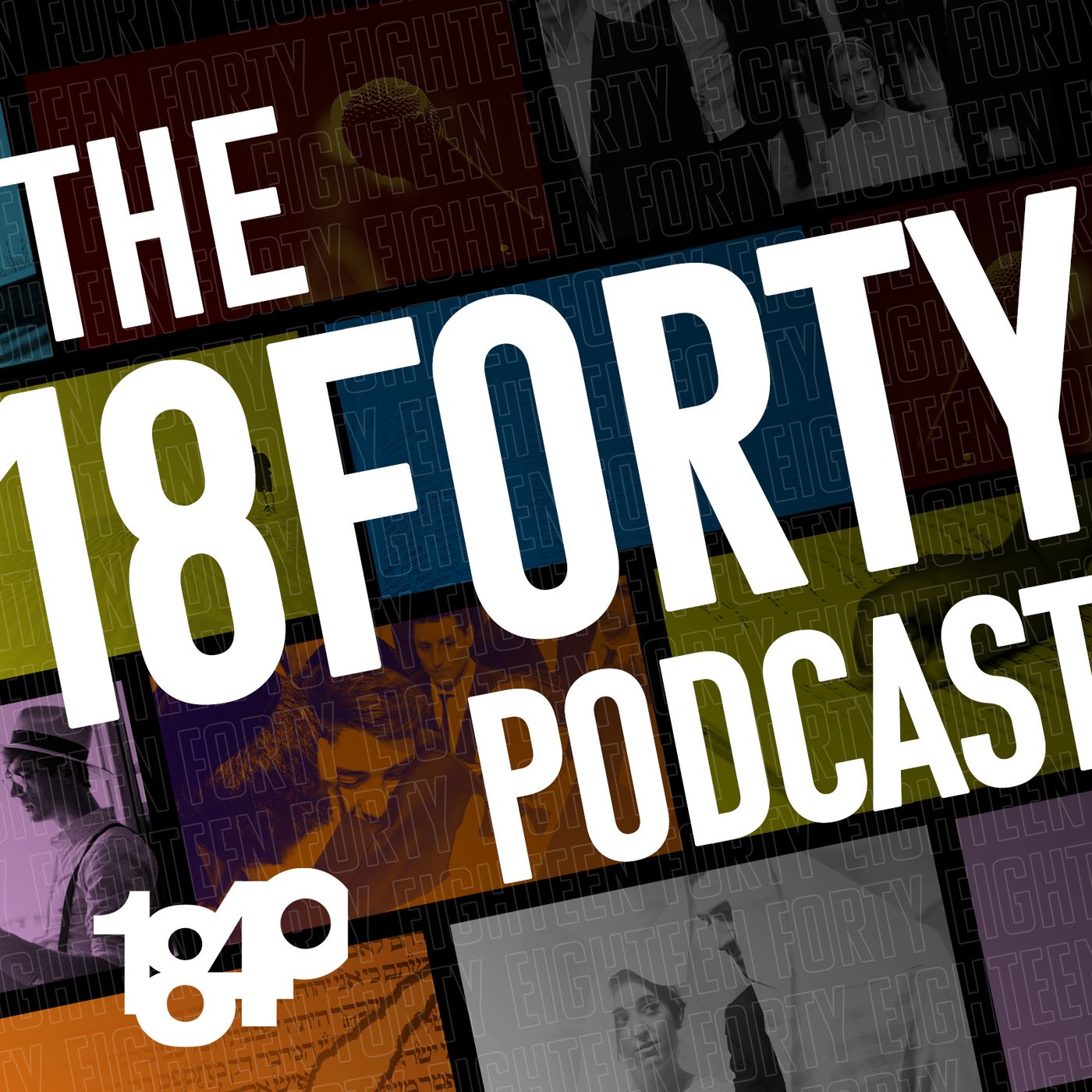

18Forty Podcast
18Forty
Helping you find meaning in life through the exploration of Jewish thought and ideas.Become a supporter of this podcast: https://www.spreaker.com/podcast/18forty-podcast--4344730/support.
Episodes
Mentioned books

Sep 3, 2025 • 1h 39min
DovBer Pinson: The Jewish People's Path of Teshuva [Teshuva 2/6]
Rabbi Dov Ber Pinson, a world-renowned scholar and spiritual mentor, delves into the transformative power of teshuva amidst today's challenges. He distinguishes between 'lower' and 'higher' teshuva, encouraging a deeper reflection on personal growth. The conversation also tackles the rise of antisemitism and the necessity of unity within the Jewish community, emphasizing love even when faced with disagreements. Pinson highlights the importance of adapting Jewish identity in a rapidly changing world, urging a collective return to spiritual authenticity.

30 snips
Aug 26, 2025 • 1h 27min
Rochi Ebner: Rav Kook's Return to Our Soul [Teshuva 1/6]
Rachel Tova Ebner, a linguist, teacher, and translator with a Master’s degree in Hebrew, discusses the spiritual insights of Rav Kook. She delves into the yearning for God and the role of feelings in personal transformation. Ebner explores how Rav Kook's teachings redefine the concept of teshuva, or repentance, and the paradox of changing the past. Additionally, she highlights the interplay between traditional beliefs and personal spirituality, urging a deeper emotional connection to Judaism as we reflect during the month of Elul.

45 snips
Aug 19, 2025 • 1h 19min
Joey Rosenfeld: What Does Jewish Mysticism Say About This Moment? [Teshuva Bonus Episode]
Rabbi Joey Rosenfeld, a psychotherapist and translator of Kabbalah and Hasidut, discusses navigating the complexities of spiritual life in today’s world. He explores where to channel spiritual energy as we reflect on recent events, the purpose of yearning, and the mystical concept of Mashiach. Joey emphasizes the importance of self-acceptance and confronting inner emptiness while drawing on themes from Jewish mysticism. Their conversation highlights the significance of embracing imperfections as pathways to spiritual revelation.

Aug 12, 2025 • 1h 29min
David Bashevkin: My Dating Story [Re-Release]
Dive into an enlightening discussion on the challenges of modern dating. Explore how personal experiences shape our understanding of commitment while navigating faith and emotional health. Gain insights on balancing religious identity with romantic aspirations. Discover the transformative nature of solitude and the evolving definition of home. Reflect on growth and connection in relationships, and learn why true commitment is essential for meaningful love.

27 snips
Aug 5, 2025 • 2h 22min
How Jews Date in the Modern World (Re-Release)
Yosef Sokol, a psychologist studying the Shidduch crisis, Efrat Sobolofsky, director of YUConnects matchmaking, and Devorah Mansdorf Ajami, an endodontist who found love on JSwipe, explore modern Jewish dating dynamics. They discuss the diverse approaches across communities, from traditional matchmaking to dating apps, emphasizing how cultural values influence relationships. The conversation addresses challenges like age gaps, societal pressures, and the balance between modernity and tradition, providing insights into the quest for meaningful connections.

6 snips
Jul 29, 2025 • 2h 18min
Hadas Hershkovitz: On Loss: A Husband, Father, Soldier [Loss 3/3]
In a poignant conversation, Hadas Hershkovitz shares her journey of loss after her husband, Yossi, was killed in Gaza. She discusses the urgency her grief has brought to her mission of uplifting the Jewish People. Hadas reflects on the anger and blame that often accompany tragedy and emphasizes the importance of community and unity in healing. Through personal anecdotes, she explores the power of faith, the transformative role of music, and how collective experiences help navigate grief, ultimately celebrating resilience and shared purpose.

Jul 22, 2025 • 1h 52min
Elissa Felder & Sonia Hoffman: How the Jewish Burial Society Cares for the Dead [Loss 2/3]
Elissa Felder, author and head of her local chevrah kadisha, and her daughter Sonia Hoffman, a dedicated Limmudei Kodesh teacher, share their profound insights on Jewish burial traditions. They discuss the Tahara ritual, emphasizing its emotional and spiritual significance in caring for the deceased. The duo also engages in a heartfelt conversation about navigating grief, normalizing discussions about loss, and the historical and communal aspects of mourning practices. Their stories intertwine the themes of love, memory, and dignity in the face of death.

10 snips
Jul 15, 2025 • 1h 53min
Shlomo Brody & Beth Popp: Demystifying Death and the End of Life [Loss 1/3]
Shlomo Brody, Executive Director of Ematai and a columnist, teams up with Dr. Beth Popp, a professor of Hospice and Palliative Medicine at Mount Sinai. They dive into the complexities of defining death and the ethical nuances surrounding end-of-life care. Topics include how to navigate medical decisions and the importance of proactive conversations about mortality. They discuss the interplay between personal experiences and cultural attitudes toward death, emphasizing compassionate care and communication as vital elements in managing loss.

32 snips
Jul 8, 2025 • 1h 8min
Micah Goodman: 'I don't want Gaza to become our Vietnam' (18 Questions, 40 Israeli Thinkers)
Micah Goodman, a prominent public intellectual and author known for his contributions to Israel's moral and political discourse, shares his insights on the fraught landscape between Israelis and Palestinians. He discusses the challenges of achieving peace, the complexities of military ethics, and the dilemmas facing Israeli society today. Goodman highlights the stark realities of conflict while advocating for a future where Gaza can rebuild without military presence. His hopeful perspective amidst adversity provides a nuanced understanding of identity and governance in the region.

9 snips
Jul 1, 2025 • 1h 34min
Ayala Fader: How Do Haredi Jews Deal With Religious Doubt? [OTD 3/3]
Ayala Fader, a Professor of Anthropology at Fordham University, dives into the complexities of Haredi Judaism and identity. She discusses how personal and communal struggles with belief and doubt manifest among Hasidic communities. The conversation highlights the impact of the internet on traditional practices and how external factors like antisemitism shape perspectives. Fader also explores the importance of open dialogue around religious doubt and the role of language, particularly Yiddish, in maintaining cultural integrity.


